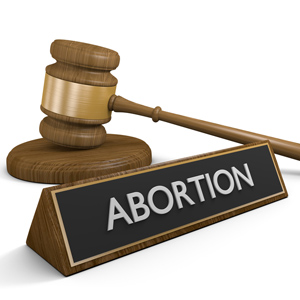7th Circuit rejects First Amendment challenge to Indiana fetal-remains law

Image from Shutterstock.
A federal appeals court has rejected a First Amendment challenge to an Indiana law requiring abortion providers to dispose of fetal remains by burial or cremation or to give the remains to patients to dispose of as they please.
The 7th U.S. Circuit Court of Appeals at Chicago ruled Nov. 28 against two doctors who don’t want to tell women about the statutory options and two women who had abortions and object to cremation or burial of fetal remains.
The First Amendment challenge followed a 2019 U.S. Supreme Court decision rejecting an equal protection challenge to the law in Box v. Planned Parenthood of Indiana and Kentucky Inc.
The 7th Circuit criticized the trial judge in the First Amendment case for issuing an injunction that barred Indiana officials from applying the fetal-remains law to anyone, rather than just the plaintiffs in the case.
“The district court’s needlessly broad injunction treats the statute as invalid across the board (that is, on its face rather than as applied), which effectively countermands the Supreme Court’s decision for the entire population of Indiana,” the appeals court said. “This offends the principle that relief should be no greater than necessary to protect the rights of the prevailing litigants.”
The 7th Circuit said it was reversing the trial judge “outright,” rather than “remanding with instructions to tailor the relief to the violation” because there is no First Amendment violation.
The two abortion-patient plaintiffs had contended that cremation or burial of the remains implies a view that a fetus has personhood. But the appeals court said dogs and other pets may be cremated or buried, so the fetal-remains law doesn’t imply anything about the appropriate characterization of a fetus.
In any event, the women’s objection to the potential implication “is some distance from a contention that the state compels any woman to violate her own religious tenets,” the appeals court said.
The 7th Circuit also rejected the doctors’ argument that they don’t have to disclose the options under the holding in National Institute of Family and Life Associates v. Becerra. The 2018 Supreme Court decision said a California law requiring anti-abortion crisis pregnancy centers to post information about the availability of state-subsidized abortions is likely unconstitutional.
According to the 7th Circuit, the Institute of Family and Life Associates case held that states can’t enforce requirements unconnected to medical care. The decision doesn’t question requirements for doctors to alert patients to laws affecting medical choices, the appeals court said.
The 7th Circuit case is Doe v. Rokita.
Judge Frank H. Easterbrook, an appointee of former President Ronald Reagan, wrote the opinion. He was joined by Judge Michael B. Brennan and Judge Michael Y. Scudder Jr., who are both appointees of former President Donald Trump.
Hat tip to Reuters, which covered the decision.
Write a letter to the editor, share a story tip or update, or report an error.



